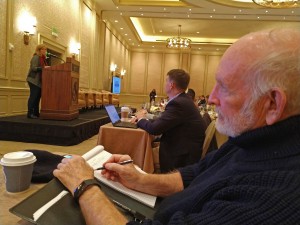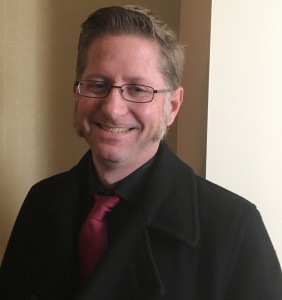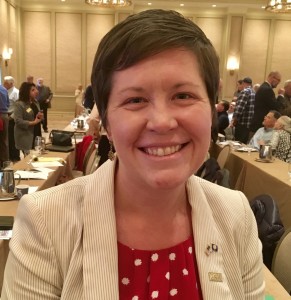A Rural Summit was convened by the Chair of the Board of Supervisors, Phyllis Randall, last Friday at the Salamander Resort in Middleburg, reflecting a concern by many that the push by developers, favoring suburban gentrification of Western Loudoun, threatened to build thousands of residential units that will compromise, if not destroy, the natural treasure that is Western Rural Loudoun.
Lovettsville Vice-Mayor Jim McIntyre who attended the Summit said, “I think the biggest thing we have to communicate is the value of Loudoun’s Rural West. We can’t emphasize that enough.”
Middleburg Mayor Bridge Littleton said, “It’s all about the Comprehensive Plan. The Comprehensive Plan is ‘the’ document which will govern land use for all Loudouners for the next 20 or 40 years. It’s just as important to Loudouners in the East as it is to the West. If we continue unconstrained development, it means worse schools, higher taxes, more transportation, and we destroy the Western Loudoun … we all enjoy.”
Chris Van Vlack, the President of the Loudoun Farm Bureau, thought what was the best for Western Loudoun “was a Comp Plan that recognizes that we need a critical mass of acreage for agriculture so that we can have the economic strength, so that those farms can continue, and also [continue to wield] the conservation tools that … help keep our water clean, and serve the entirety of Loudoun County, [and] take the pressure off having to do more structural water clean-up in the Eastern part of Loudoun County.”
Tia Walbridge, an active sheep farmer, in Western Loudoun, is a founding board member of “Save Rural Loudoun,” an associate director of the Loudoun Soil and Water Conservation District, and serves on the Virginia Agricultural Council.
Tia was slated to MC the Summit but there was a partisan objection because she announced, separate and apart from this MC assignment, that she sought to run for office to become the Blue Ridge Supervisor; Tony Buffington presently represents the Blue Ridge District.
In the political tumult that followed, a Lovettsville activist threatened on line to bring a crowd to disrupt the Summit – if Tia did not withdraw as the Summit’s MC.
Tia confirmed the threats in an interview, and that she withdrew so as not to distract from “the important business of the Summit.”
Both Blue Ridge Supervisor Buffington and Catoctin Supervisor Geary M Higgins objected that Tia’s role as MC was “playing politics.”
But Mr. Buffington attended the Summit and stood right next to the registration table, glad-handing the attendees. Then Mr. Buffington left that station and – “worked the room.”
Mr. Higgins was also seen greeting voters and walking up and down the aisles among the attendees.
Mr. Buffington addressed the Summit in what a nearby seatmate characterized as a 10 minute “campaign speech,” about what Mr. Buffington was doing for his constituents.
From the beginning of the “Envision” process, by which the County set forth to draft a new County Comprehensive Plan, there has been legitimate community concern that the “process” suffered from a grave risk that it was calculated to deliver a pre-determined outcome.
The thousands of comments from the citizens (recorded in small 10 pica type), as part of the “process,” demanded the Board preserve Western Loudoun as Rural:
- “Stop the urban sprawl and protect Western Loudoun.”
- “Maintain two distinct areas, rural west, urban east.”
- “Keep the West rural.”
- “Stop growth.”
- “Contributing to this is the county caving in to developers’ desires…”
- “Economic development should not be a higher purpose than livability – property rights matter.”
- “Rural roads should be left unpaved. If people move to the rural area it should be for the aesthetics of the area.”
- “Protect culture of western Loudoun established over last 250 years.”
- “Protect stone fences throughout western Loudoun, along historic roadways in western Loudoun County, e.g., Beaverdam Creek Historic Roadway.”
- “Maintain open spaces.”
- “Preserve current agriculture [and] farms.”
- “Historic villages aren’t meant to support traffic.”
- “No big box stores [in] Western Loudoun.”
- “Love Western Loudoun as it is, keep open space, horse farms, fight development pressure/housing development.”
- “Stop the residential development.”
The residents’ opinions were at loggerheads with a separate “Foundation Report” that claimed “Loudoun County has evolved from a collection of rural villages” and from when it was “primarily an agricultural community.”
The Report insisted that there was a “growing market demand for new types of development and community amenities.”
The Report then took aim at the rural lands of Western Loudoun, “the remaining uncommitted or underdeveloped residential land that could be developed in the future is approximately 1/3 of available land in the Rural and Transition areas …”
Western Loudoun’s Rural land, as envisioned in the Report, represents an inventory of land “available for development” of 82,600 acres.
The number of residential units “envision[ed]” for Western Loudoun has crept upward as the “process” marches on; thus the public outcry.
Former Senator Charles Waddell said in 1984 that “the West won’t be developed … unless and until there is public water.”
The Report criticizes the adequacy of the “small [water] systems serving towns and subdivisions, and private systems with individual wells and sewage disposal systems.”
Dan Morrow, editor and correspondent for the Middleburg Eccentric, said, “the quality of rural life is of singular importance to us. I think this is a very important Summit. I want to see what people have to say and not only what they have to say but what they are going to do about what is said.”
As the “process” approaches its final reckoning, the question remains whether developers will force their vision of more residential units on the Board in defiance of the plainly expressed will of the people who actually live here.



